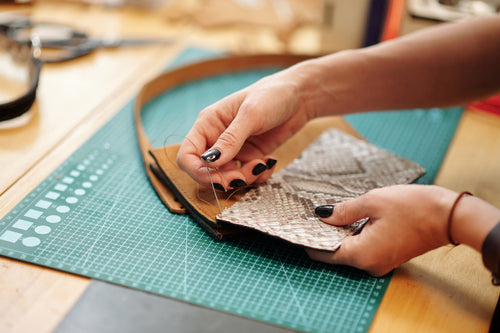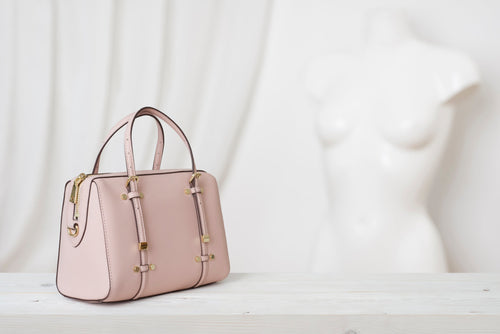Shop designer bags worldwide
Shop designer bags worldwide
All Handbags 2
How Handbags Are Made: Step by Step Guide

Handbags are not just fashion statements; they are masterpieces of craftsmanship and design. From selecting the perfect materials to the final stitch, creating a handbag is an intricate process that combines tradition and technology. This guide will take you through the step-by-step journey of how handbags are made, illuminating the artistry and precision involved in bringing these essential accessories to life.
Step 1: Design and Conceptualization
The creation of a handbag begins with design and conceptualization. Designers draw inspiration from various sources, including current trends, classic styles, and innovative ideas. Sketches are meticulously crafted, detailing the handbag's shape, size, and features. This phase also involves selecting the materials, such as leather, fabric, and hardware, ensuring they align with the design vision and functionality requirements.
Step 2: Material Selection
Choosing the right materials is crucial for the handbag's aesthetic and durability. Leather, one of the most popular materials, is carefully selected based on its quality, texture, and color. Other materials, including fabrics, metals for hardware, and linings, are chosen to complement the design. The materials' quality directly impacts the handbag's final look and feel, making this step fundamental in the manufacturing process.
Step 3: Pattern Making
Once the design is finalized, pattern makers translate the sketches into precise templates. These patterns are crucial for cutting the materials accurately. They include allowances for seams and hardware fittings, ensuring that the pieces fit together perfectly. This step requires precision, as any errors in the pattern can affect the handbag's overall design and functionality.
Step 4: Cutting the Materials
With the patterns ready, the next step is cutting the materials. Craftsmen use specialized tools to cut leather and fabric according to the patterns. This process can be manual, using shears or knives, or automated with laser cutters for consistency and efficiency. The cut pieces form the handbag's body, straps, pockets, and other components.
Step 5: Assembling the Pieces
Assembly begins with preparing the cut pieces, including applying adhesives, reinforcing materials, and attaching hardware like zippers, clasps, and buckles. The pieces are then stitched together, starting from the interior components like pockets and linings. Skilled artisans ensure that each stitch is precise, maintaining the handbag's structure and aesthetic appeal.
Step 6: Quality Control and Finishing Touches
Quality control is integral to the handbag manufacturing process. Each handbag undergoes thorough inspections to ensure it meets the brand's standards for quality and craftsmanship. Finishing touches, including polishing hardware and cleaning the handbag, are applied to enhance its appearance. The final product is then ready for packaging and distribution.
FAQs about Handbag Manufacturing
What materials are used in handbag manufacturing?
Handbags can be made from a variety of materials, including leather, fabric, synthetic materials, and metals for hardware. The choice of material depends on the design and intended use of the handbag.
How long does it take to make a handbag?
The time to make a handbag varies depending on its complexity and the craftsmanship involved. It can range from a few hours for simple designs to several days for luxury handbags with intricate details.
Can I customize a handbag?
Many brands offer customization options, allowing customers to select materials, colors, and hardware to create a personalized handbag.
How can I ensure the quality of a handbag?
Look for handbags from reputable brands that use high-quality materials and employ skilled artisans. Pay attention to the handbag's stitching, hardware, and overall finish to assess its quality.
In conclusion, the creation of a handbag is a detailed process that involves careful planning, precision, and craftsmanship. From the initial design to the final inspection, each step contributes to the handbag's quality and uniqueness. Understanding this process enhances our appreciation for these essential accessories, reminding us of the artistry and skill behind every handbag.
Leave a comment
Comments will be approved before showing up.
Also in Guides

The Definitive Radley Handbags Bible: Luxurious & Cherished
by Manuel Peters March 22, 2025 11 min read
Read More
Designer Bags Under $1000: Ultimate Buying Guide
by Ramisha khan March 06, 2025 10 min read



